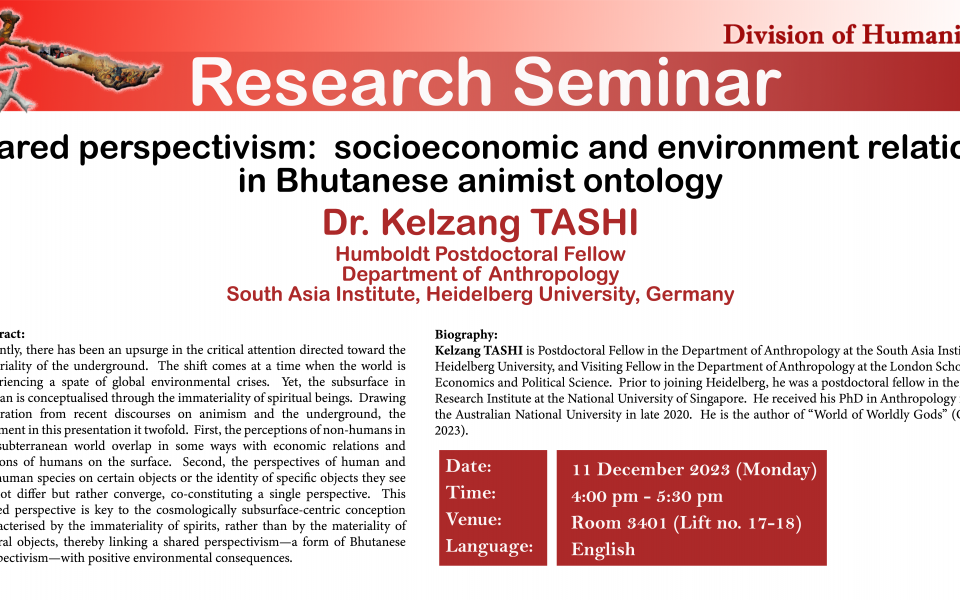Abstract:
Recently, there has been an upsurge in the critical attention directed toward the materiality of the underground. The shift comes at a time when the world is experiencing a spate of global environmental crises. Yet, the subsurface in Bhutan is conceptualised through the immateriality of spiritual beings. Drawing inspiration from recent discourses on animism and the underground, the argument in this presentation it twofold. First, the perceptions of non-humans in the subterranean world overlap in some ways with economic relations and tensions of humans on the surface. Second, the perspectives of human and nonhuman species on certain objects or the identity of specific objects they see do not differ but rather converge, co-constituting a single perspective. This shared perspective is key to the cosmologically subsurface-centric conception characterised by the immateriality of spirits, rather than by the materiality of natural objects, thereby linking a shared perspectivism—a form of Bhutanese perspectivism—with positive environmental consequences.
Biography:
Kelzang TASHI is Postdoctoral Fellow in the Department of Anthropology at the South Asia Institute, Heidelberg University, and Visiting Fellow in the Department of Anthropology at the London School of Economics and Political Science. Prior to joining Heidelberg, he was a postdoctoral fellow in the Asia Research Institute at the National University of Singapore. He received his PhD in Anthropology from the Australian National University in late 2020. He is the author of “World of Worldly Gods” (OUP, 2023).
